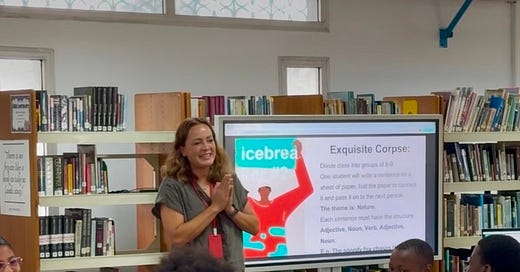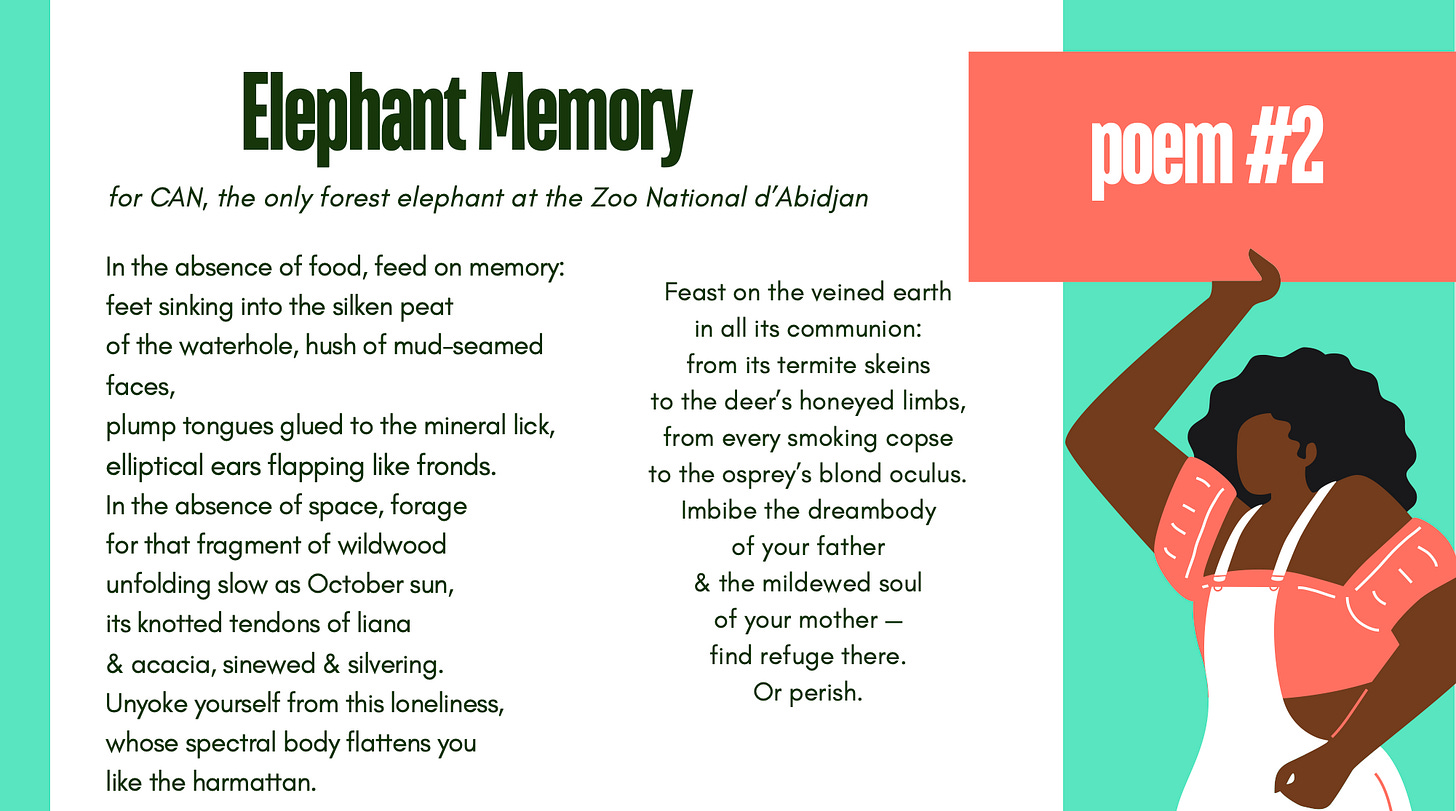Finding Our Wild Selves: A Middle School Poetry Workshop
How animal metaphors can help young writers discover their voices and explore identity through poetry + a complete 75-minute lesson plan for teachers.
Welcome to Archipel, an ongoing dialogue between me (Cara Waterfall) and other poets and creatives of all kinds, celebrating the ways we connect through mentorship, community and transitions.If you are interested in participating, please send me an email by replying to this newsletter or click here.
Join the Archipel community today!
Archipel was also inspired by my very first poetry mentor, my father. When you purchase a subscription to this newsletter, you are paying into a scholarship fund in his name, which will support one emerging poet.
I’m proud to tell you that the fund currently has $2, 000 USD! And we will be raising funds until September 1, 2025. To learn more about The Donald E. Waterfall Scholarship Fund, click here. Applications are open NOW and close June 15th!
Teaching a Middle School Poetry Workshop
Last month, I led a poetry workshop with 45 sixth-grade students at the International Community School of Abidjan (ICSA). We explored identity and self-expression through animal poetry in a workshop called "Many Selves, Many Species," using animal metaphors to help students discover their own voices.
I'll admit it — I was nervous about teaching middle schoolers. I hadn’t set foot in a middle school since I was in middle school. And my own 12-year-old son's eye-rolls and my 10-year-old's dire warning of "Oh my God, Mom, you're dead" didn't exactly boost my confidence.
But those worries melted away once I began speaking to the students.
The sixth-graders were amazing — engaged, curious, eager to participate. They dove into activities and bravely shared their poems with peers and teachers. What I loved most was how the workshop felt more like a conversation than a lecture, with questions and ideas flowing freely.
I'm grateful for the support of "superhero teachers" Patty Peters, Colby and Dr. Johnson, who helped guide group activities and keep us on track.
Icebreakers
Sometimes, simple things work best. We started with two exercises: First, students completed the sentence "Poetry is..." with the first word that came to mind.
Then we played "Exquisite Corpse," a collaborative writing game where students built poems one line at a time, following an (Adjective) (Noun) (Verb) (Adjective) (Noun) format. The unexpected combinations showed how creative wordplay can bring language to life.
The Power of Animal Metaphors
We explored how animals can reveal truths about ourselves through two poems from my book, Radiant Wound.
"Ode to the Cockroach" is about resilience. I asked the students to reflect on these two key questions:
Survival: How do you adapt when things get tough?
Belonging: How do you make space for yourself in the world?
The second poem, “Elephant Memory" is about identity and belonging:
I wanted the students to reflect on:
Memory & Survival: What memories help you feel connected to who you are?
Home: How do you create a sense of home when you're in a new place?
Breaking Down Literary Devices
Instead of getting too technical, we focused on familiar concepts like similes and metaphors, and line breaks and persona. Understanding line breaks was key - they create rhythm and emphasis in poetry. My goal was to use these simple tools to spark deeper conversations about how the students see themselves.
Writing Workshop: Crafting Animal Poetry
I asked the students to create animal self-portraits using two approaches:
The Anti-Ode: an ode praising an animal they dislike.
A fill-in-the-blank template inspired by poet Joseph Fasano's work also allowed students to explore their inner animals through guided imagery:
Poem to Myself
No one knows the (ANIMAL) that (VERBS) in me.
No one knows my heart is a/an (adjective) (noun)
I carry through the (noun) toward the (noun).
No one knows the (noun) I softly (verb).
But I do. I do.
I will wake today and (verb) my (noun).
I will walk today and (verb) the (noun).
I will (verb) until I (verb) the (noun).
(Repeat ANIMAL), (repeat VERB three times).
Creating Safe Spaces for Expression
The sharing circles were magical moments. Students gathered in small groups to share their favorite lines, with one rule: all feedback had to start with "I like how you..." This created a supportive environment — reminiscent of my own workshop experiences — where students felt safe to share their work.
Key Takeaways
The first thing I learned is to go with the flow. A poetry workshop is rarely going to go completely according to plan, so adapt on the fly. See what your audience is engaging with and what might not be working. Nothing should be written in stone.
Last but not least, poetry comes alive when it connects to students' lived experiences: using animals as a bridge between the familiar and creative helped them explore their identities through verse. In other words, they found authentic ways to express their human experiences by exploring their animal selves.
Looking Forward
This middle-school workshop confirmed what I believe about poetry — that for young minds, it’s less about knowing literary devices and more about creating spaces where their voices can roar, soar and…explore.
Find the full Lesson Plan here.
Thank you for reading!
With love and intention,
Cara







I can just see/hear your kids! "...Mom, you're dead." Love it. And would have loved being part of your class. In any case, thank you for this added insight into your multi-faceted poetry career.
This is fantastic! Thank you for sharing.